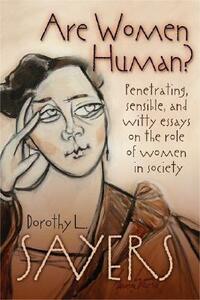Take a photo of a barcode or cover
Excellent! Witty and thought provoking! Still relevant 75 years later.
"'What,' men have asked distractedly from the beginning of time, 'what on earth do women want?' I do not know that women, as women, want anything in particular, but as human beings they want, my good men, exactly what you want for yourselves: interesting occupation, reasonable freedom for their pleasures, and sufficient emotional outlet. What form the occupation, the pleasures, and the emotion may take, depends entirely upon the individual. You know that this is do with yourselves--why will you not believe that it is so with us?" pg 44
"'What,' men have asked distractedly from the beginning of time, 'what on earth do women want?' I do not know that women, as women, want anything in particular, but as human beings they want, my good men, exactly what you want for yourselves: interesting occupation, reasonable freedom for their pleasures, and sufficient emotional outlet. What form the occupation, the pleasures, and the emotion may take, depends entirely upon the individual. You know that this is do with yourselves--why will you not believe that it is so with us?" pg 44
challenging
informative
fast-paced
A refreshingly sane and thoughtful pairing of essays.
challenging
funny
informative
inspiring
reflective
fast-paced
challenging
funny
reflective
Thought-provoking and witty, very quick read.
Minor: Sexual content
challenging
funny
Sayers’s view of “the woman problem,” based as it is in the larger perspective on the point of humanity as a whole, has not grown less accurate despite the fact that it’s almost 90 years old.
funny
reflective
fast-paced
I admire Dorothy Sayers. She’s hilarious too. These essays are spot on.
challenging
funny
informative
reflective
fast-paced
Picked this up because the title caught my eye at a local book store and just couldn’t help but devour this sassy sensation





